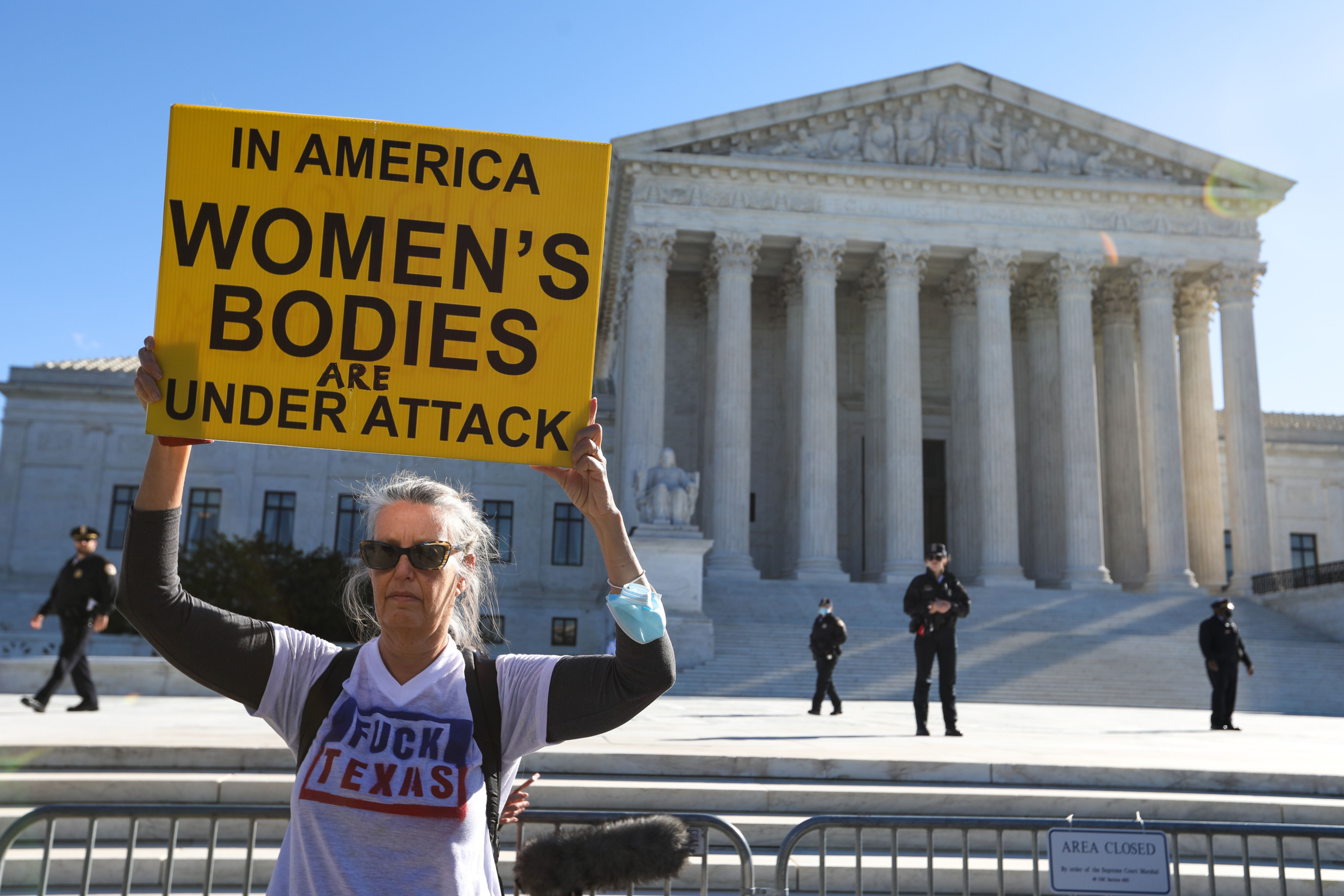Gender Reporter, HuffPost
Conservative lawmakers in Ohio introduced a copycat Texas abortion restriction Tuesday night that goes even further than the highly controversial measure from the Lone Star State. Rather than impacting abortions after six weeks of pregnancy, the law aims to prohibit them at any stage of pregnancy.
Republican state Reps. Jena Powell and Thomas Hall introduced H.B. 480 on Tuesday evening. Similar to Texas’ S.B. 8, H.B. 480 deputizes private citizens to enforce the law by offering a $10,000 bounty to anyone who successfully sues someone aiding or abetting a person seeking an abortion.
“The sanctity of human life, born and preborn, must be preserved in Ohio,” Powell said in a statement, according to The Cincinnati Enquirer. “Abortion kills children, scars families, and harms women. We can and must do better.” Powell did not immediately respond to HuffPost’s request for comment.
The proposed legislation is titled the “2363 Act” for the “two thousand three hundred sixty-three children lost to abortion every day in the United States,” according to the bill. In 2018, 619,591 abortions were performed, according to a report from the U.S. Centers for Disease Control and Prevention, which comes out to around 1,698 abortions performed each day.
Powell and Hall unveiled their bill just a day after the Supreme Court heard oral arguments on Texas’ controversial abortion ban, S.B. 8. Many of the Supreme Court Justices, including Donald Trump appointees Brett Kavanaugh and Amy Coney Barrett, seemed open to allowing legal challenges to Texas’ abortion ban. The Texas restriction, which went into effect on Sept. 1, is highly controversial and has already had deeply detrimental effects on people seeking abortions in the state.
“One key part of Texas’ vigilante anti-abortion law was to provide a roadmap for other states, and we are seeing that now as Ohio is following in Texas’s footsteps,” Elizabeth Nash, a principal policy associate at Guttmacher Institute, a research and policy organization that supports abortion rights, wrote to HuffPost.
“Should Ohio adopt a total abortion ban, it would utterly dismantle abortion access in the state,” she continued. “This law would mean that patients would have to pull together at least hundreds of dollars, be away from home ― possibly for days ― take time off of work, arrange childcare, and travel significant distances to get the abortion. Not surprisingly, this would be an insurmountable burden for many, particularly those facing systemic oppression including those with low incomes, people of color and LGBTQ individuals.”
Ohio’s anti-abortion bill already has majority support from the Republican-controlled state House, according to The Associated Press. It’s unclear if H.B. 480 has the potential to pass in the state Senate.
Reproductive rights advocates warned when Texas’ S.B. 8 passed that it would likely inspire copycat legislation in other red states. And they were right: At least 10 other states are working to pass a Texas-style abortion restriction, including Arizona, Georgia, Indiana and Missouri.
Florida was the first state to introduce a copycat bill back in September, but advocates on the ground say they’re confident it will not gain traction in the state legislature. More likely, Florida’s Republican-controlled state legislature will push a less extreme but equally damaging anti-abortion restriction similar to Mississippi’s 15-week ban on abortion that’s currently threatening Roe v. Wade.
Arkansas is not far behind Florida and Ohio. One state lawmaker said “what Texas has done is absolutely awesome” and later promised to propose something similar.
Texas Democratic Reps. Sheila Jackson Lee and Sylvia Garcia have witnessed the consequences of S.B. 8 ― and are urging others to take action to hopefully curb a domino effect of copycat bills.
“These bills will crush democracy, not just for women ― they will crush democracy for all Americans,” Jackson Lee told HuffPost. “Women are fleeing Texas now, and poor women, women of color cannot flee ― they don’t have the resources to flee. So what are we turning America back to? A bunch of back alley [abortions] where women and girls are forced to go to rather than to go to their provider, their religious leader or their family?”
Last week, Jackson Lee introduced a new bill, the Preventing Vigilante Stalking that Stops Women’s Access to Healthcare and Abortion Rights Act. The bill seeks to criminally charge a person if they are stalking someone in order to prohibit them from accessing health care or abortion care information.
“When Texas passed Senate Bill 8, we rang the alarm that these dangerous bills would spread,” Garcia, the Democratic Women’s Caucus vice chair, told HuffPost. “Now, even more extreme abortion bans like the one in Ohio are joining the all-out attack on women’s reproductive freedom. All the while, SCOTUS has refused to block the implementation of these bills.”
Abortion rights advocates have continued to vocalize their support for the Women’s Health Protection Act (WHPA) in response to Texas’ S.B. 8 and other copycat bills. The bill aims to protect the right to abortion by preventing states from imposing restrictions on abortion that make it harder for pregnant people to access care.
“There are already women in Texas, in Ohio, in states across the country who are being harmed,” Garcia added, underscoring the importance of the WHPA. “Women across the country can’t wait for Congress to act. We need to protect Roe and women’s freedom to choose.”
The WHPA passed the House in September. A date for the Senate vote has not been announced.
Gender Reporter, HuffPost

